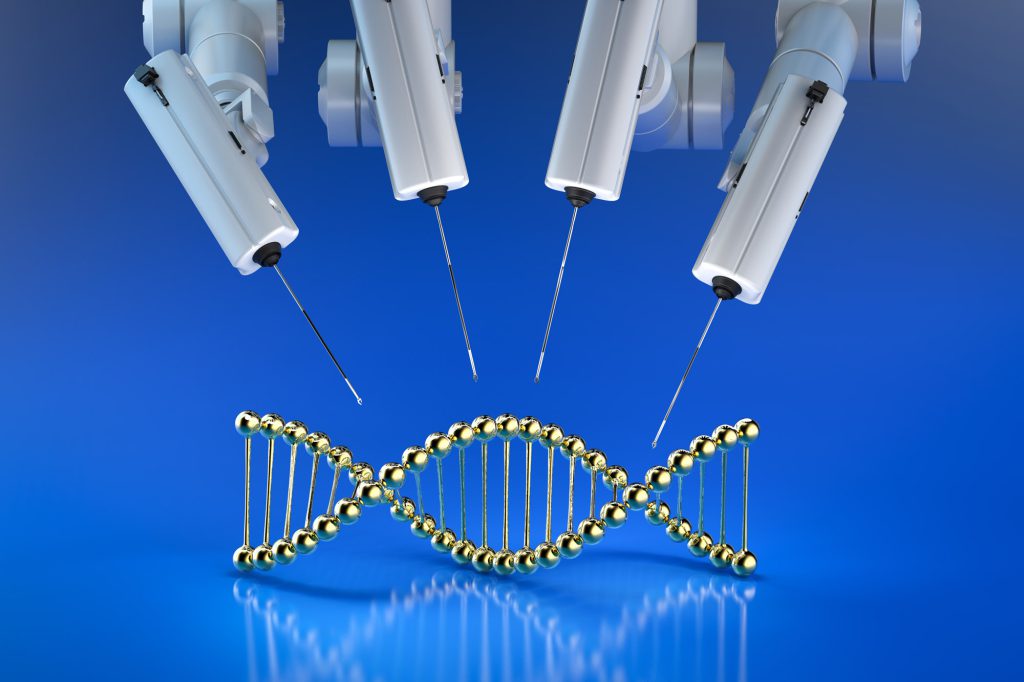Gene editing technologies, particularly CRISPR-Cas9, have significantly advanced personalized medicine by enabling precise modifications to an individual’s genetic code. This precision allows for treatments tailored to a patient’s unique genetic makeup, offering the potential to correct genetic disorders at their source.
CRISPR-Cas9 and Its Role in Personalized Medicine
CRISPR-Cas9 has revolutionized the field of gene editing due to its ability to target specific DNA sequences with high accuracy. This technology has been instrumental in developing therapies for various genetic conditions, including sickle cell disease and certain forms of cancer. By correcting mutations at the genomic level, CRISPR-based treatments can provide long-lasting solutions compared to traditional therapies.
Recent advancements have led to the development of base editing and prime editing techniques, which allow for even more precise genetic modifications without introducing double-stranded breaks in DNA. These methods expand the toolkit available for personalized medicine, enabling the correction of point mutations responsible for many genetic disorders.
Applications in Cancer Treatment
In oncology, personalized medicine aims to tailor treatments based on the genetic profile of a patient’s tumor. Gene editing technologies have facilitated the development of targeted therapies that can modify cancer cells’ genetic material, rendering them more susceptible to treatment. For instance, CRISPR-based approaches have been employed to disrupt genes that contribute to cancer progression, thereby enhancing the efficacy of existing treatments.
Ethical Considerations and Future Directions
While the potential of gene editing in personalized medicine is immense, it raises significant ethical considerations. The ability to alter the human genome necessitates a careful examination of the long-term implications and potential unintended consequences. Ongoing discussions focus on establishing guidelines to ensure that gene editing technologies are applied responsibly, balancing innovation with ethical responsibility.
Looking forward, the integration of gene editing with other emerging technologies, such as artificial intelligence and next-generation sequencing, is expected to further enhance the precision and efficacy of personalized medicine. These advancements hold the promise of more effective treatments and improved patient outcomes across a wide range of genetic disorders.
1. “The Future of Gene Editing in Personalized Medicine”
BMC Translational Medicine. Retrieved from https://translational-medicine.biomedcentral.com/articles/10.1186/s12967-024-05957-3
2. “Advances in CRISPR and Its Role in Cancer Treatment”
Molecular Cancer. Retrieved from https://molecular-cancer.biomedcentral.com/articles/10.1186/s12943-022-01552-6
3. “CRISPR and Gene Editing: The Future of Personalized Medicine”
MedTech Review Magazine. Retrieved from https://medtechreviewmagazine.com/crispr-and-gene-editing-the-future-of-personalized-medicine/
4. “Magic Medicine? The Revolution in Genes and Health”
The Australian. Retrieved from https://www.theaustralian.com.au/health/ai-genomics-and-virtual-care-set-to-save-buckling-health-systems/news-story/8b12870558f7832ce5517852c72b5951
5. “NHS to Roll Out Crispr Gene Editing Drug”
Financial Times. Retrieved from https://www.ft.com/content/061c5c18-487d-44aa-89e2-fe692b40c63d
